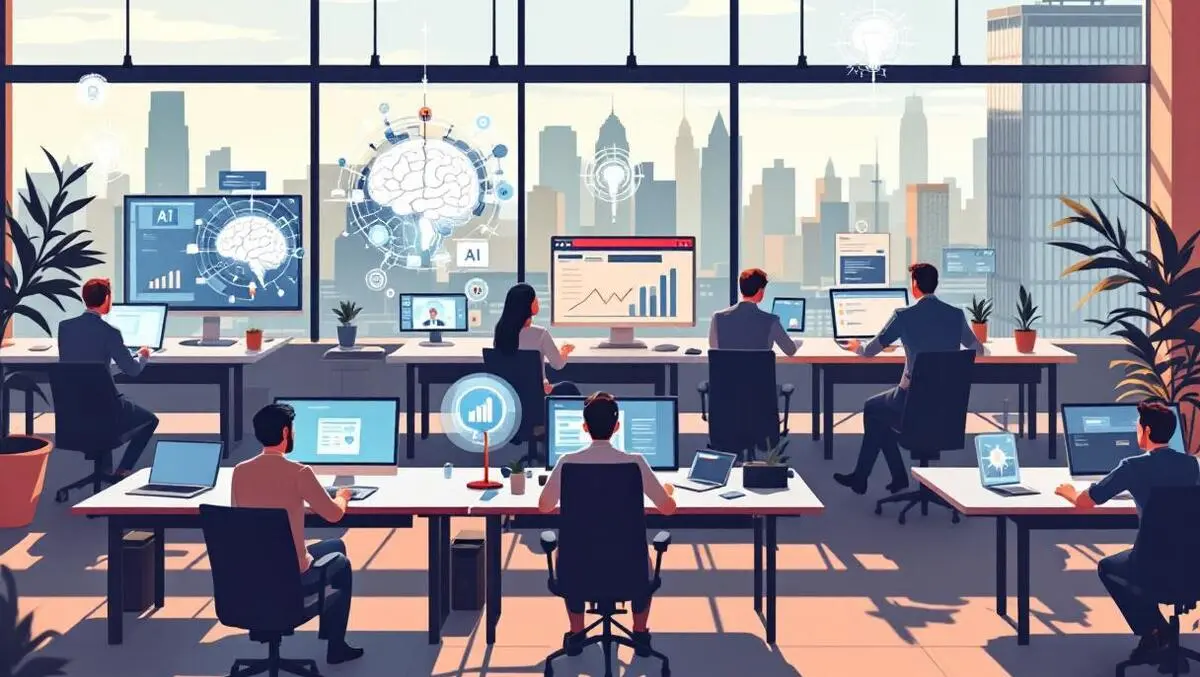What should leaders do now to prepare for the next stage of AI adoption?

Artificial intelligence has shifted from a speculative concept to a practical tool reshaping how organisations operate. Across Australia, businesses are increasingly exploring the potential of AI to streamline processes, boost efficiency, and uncover new value pathways. The pace of adoption is accelerating, driven by demand for faster insights, better operational visibility, and the pressure to do more with leaner teams. Leaders are now weighing how best to integrate AI in ways that support both commercial outcomes and evolving workplace expectations.
Much of the focus has turned toward generative AI, a branch of artificial intelligence capable of producing content, insights, and structured outputs from simple prompts. Its capacity to summarise information, analyse patterns, and create documentation has made it a powerful tool for transforming traditional workflows. As organisations consider how to adapt, many are grappling with what this shift means for their people, their culture, and the future design of roles. The challenge is no longer whether AI should be explored, but how quickly businesses can move while managing change responsibly.
This period of transition has also raised questions about which functions will experience the greatest disruption and where the opportunities will emerge next. Some teams are already seeing transformative results, while others are only beginning to trial early use cases. For leaders, this makes the ability to separate short-term experimentation from long-term strategic advantage more important than ever.
“If you actively adopt AI and help your team find opportunities to use these tools, you quickly become a highly sought-after talent.”
On a recent AU Market Update, Host Ben Wheeler, QLD Managing Director, was joined by Guest Ran Sun, Data & AI Partner at AI Consulting Group, to explore how AI is reshaping financial reporting, automation, and the wider workforce.
Ran explained that while AI has existed for many years, generative AI has shifted the landscape due to its ability to generate text, images, audio, and even video. For functions like finance, this has created new opportunities to automate reporting, summarise large volumes of information, and produce structured documents quickly. Businesses are beginning to adopt AI solutions that can support sustainability reporting, financial summaries, and other repetitive documentation tasks with greater speed and accuracy.
Beyond reporting, the conversation highlighted how generative AI is improving process automation. Teams that previously relied on manual data entry, such as mapping invoice fields or verifying details, now benefit from systems capable of recognising context, extracting information, and removing repetitive steps. This type of automation is already reducing administrative workload and freeing employees to focus on higher-value activities.
However, Ran addressed one of the most common concerns: the belief that AI will replace jobs. He emphasised that while disruption is inevitable, the effect is twofold. Some tasks will be automated, leading to fewer manual processes, but new opportunities will also emerge. Individuals who proactively adopt AI, experiment with tools, and help integrate them into workflows position themselves as valuable assets to their organisations. Rather than resisting change, employees who become champions of AI can build strong career prospects and contribute directly to innovation.
The discussion also explored which roles are experiencing the most immediate impact. Coding and engineering teams are already seeing substantial shifts due to tools like GitHub Copilot, which assist with writing and reviewing code. Marketing functions are also being transformed as AI generates content, designs, videos, and campaign ideas faster than traditional methods. Operations is another area where AI is streamlining processes, reducing repetitive tasks, and enabling teams to focus on strategic, analytical, and customer-focused activities.
Looking ahead, Ben and Ran discussed whether AI could evolve into its own dedicated function. Many organisations are trialling AI assistants across the workforce, giving employees access to tools that speed up writing, research, and information retrieval. Some early adopters are even exploring AI “employees” capable of handling end-to-end tasks such as research or document drafting. While still early, these developments signal that AI may sit both as a company-wide capability and a specialised discipline depending on organisational needs.
The conversation closed with practical guidance for leaders considering their next steps. Ran encouraged organisations to stay curious, experiment with AI use cases, and focus on areas where the technology can deliver meaningful value. He also noted the importance of developing internal capability by supporting teams to learn and apply AI tools in their everyday work. As adoption becomes widespread, companies that invest in both technology and talent will be best positioned to benefit.
What should leaders do now to prepare for the next stage of AI adoption?
- Support employees to engage with AI tools and build confidence
- Identify processes that could benefit from automation or simplification
- Experiment with generative AI solutions in reporting, documentation, and analysis
- Review which teams may need upskilling to adapt to new technologies
- Encourage a culture of innovation and continuous learning
- Assess long-term opportunities where AI could reshape workflows or enhance decision-making
Grow your career and teams with people2people
In business since 2005 in Australia, NZ, and the United Kingdom, people2people is an award-winning recruitment agency with people at our heart. With over 12 offices, we specialise in accounting and finance, business support, education, executive, government, HR, legal, marketing and digital, property, sales, supply chain, and technology sectors. As the proud recipients of the 2025 RCSA and SEEK Outstanding Large Agency Awards, we are dedicated to helping businesses achieve success through a people-first approach.
Recent articles

Latest PR features
Copyright 2026, people2people Recruitment







